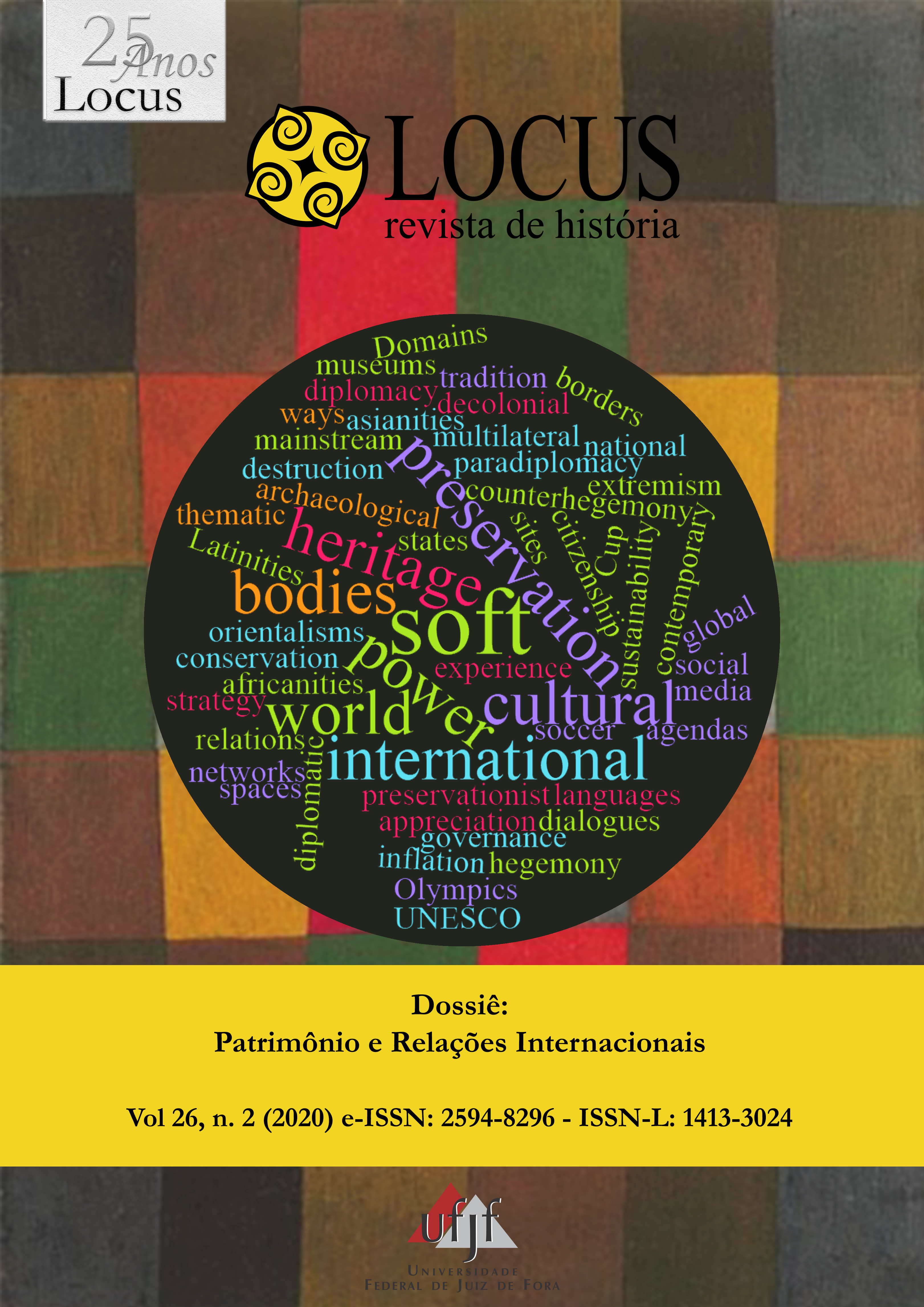A Clean People is a Developed People: Public health propaganda in the “leaden years” of the Brazilian Dictatorship
Published 2020-09-10
Versions
- 2021-04-30 (2)
- 2020-09-10 (1)
Keywords
- Dictatorship,
- Advertising,
- Development,
- Cheers
How to Cite
Abstract
This article aims to analyze the relationship between advertising and health in the “lead years”, specifically in the year 1972 when the dictatorship staged the peak of political repression in Brazil, under the government of general Emílio Garrastazu Médici. The main purpose will be the analyses of the short films of the campaign - “Povo desenvolvido é povo limpo” - produced by the advertising executive Ruy Perotti Barbosa of Linxfilm company and released by the Assessoria Especial de Relações Públicas (AERP). Departing from these movies will be possible to reflect upon the relationships between the Dictatorship and the field of public health, above all, the aspects of continuity of a certain individualizing conception, which considers the subject as responsible for his own well-being. With this conception, AERP launched a hygiene campaign that,
more broadly, functioned as propaganda for the dissemination of the modernizing project of the civil-military dictatorship. It deleted the word health and linked the principles of hygiene to the notion of development.
Downloads
References
- Aarão Reis, Daniel. “A revolução e o socialismo em Cuba: ditadura revolucionária e construção do consenso”. In: Rollemberg, Denise e Quadrat, Samantha Viz. (orgs.). A construção social dos regimes autoritários. Legitimidade, consenso e consentimento no Século XX. v. 2: Brasil e América Latina. Rio de Janeiro: Civilização Brasileira, 2010.
- Arikawa, Monalisa. “A evolução da animação”. In: Observatório da Imprensa. Ed. 746, 14 de maio de 2013. Link: http://www.observatoriodaimprensa.com.br/diretorio-academico/_ed746_a_evolucao_da_animacao/, acesso realizado em 09/04/2020.
- Castro Netto, David Antônio de. Propaganda e legitimação na ditadura militar brasileira (1968-1977). Curitiba: Prismas, 2016.
- Cordeiro, Janaína Martins. A direita em tempos de milagre: comemorações, orgulho e consentimento. Rio de Janeiro: FGV, 2015.
- De Certeau, Michel. A invenção do cotidiano: artes de fazer. Petrópolis: Vozes, 1994.
- Fico, Carlos. Reinventando o otimismo. Ditadura, propaganda e imaginário social no Brasil. Rio de Janeiro: FGV, 1997.
- Gilman, Nils. Mandarins of the future - Modernization theory in Cold War America. Baltimore and London: Johns Hopkins University Press, 2003.
- Hamburguer, Éster. “Diluindo fronteiras: a televisão e as novelas no cotidiano”. In: Schwarcz, Lilia Moritz (Org.). História da Vida Privada no Brasil. Vol 4. São Paulo: Companhia das Letras, 2000.
- Hochman, Gilberto. A era do saneamento: as bases da política de saúde pública no Brasil. São Paulo: Hucitec/Anpocs, 1998.
- Klein, Herbert S. & Luna, Francisco Vidal. “População e Sociedade”. In: Schwarcz, Lilia Moritz. (coord.). História do Brasil Nação-1808-2010. Volume 5. São Paulo: Objetiva, 2014.
- Klein, Herbert S. & Luna, Francisco Vidal (b). “Mudanças Sociais no Período Militar (1964-1985)”. In: Aarão Reis, Daniel.; Ridenti, Marcelo; Sá Motta, Rodrigo P. A Ditadura que mudou o Brasil: 50 anos do golpe de 1964. Rio de Janeiro: Zahar, 2014.
- Napolitano, Marcos. “Fontes Audiovisuais: A história depois do papel”. In: Pinsky, Carla Bessanezi (org.). Fontes Históricas. São Paulo: Contexto, 2015.
- Rollemberg, Denise e Quadrat, Samantha Viz. (orgs.). A construção social dos regimes autoritários. Legitimidade, consenso e consentimento no Século XX. V. 2: Brasil e América Latina. Rio de Janeiro: Civilização Brasileira, 2010.
- Sá Motta, Rodrigo Patto. As Universidades e o Regime Militar. Rio de Janeiro: Zahar, 2014.
- Singer, Paul. “O Processo Econômico”. In: In: Aarão Reis, Daniel.; Ridenti, Marcelo; Sá Motta, Rodrigo P. A Ditadura que mudou o Brasil: 50 anos do golpe de 1964. Rio de Janeiro: Zahar, 2014.


